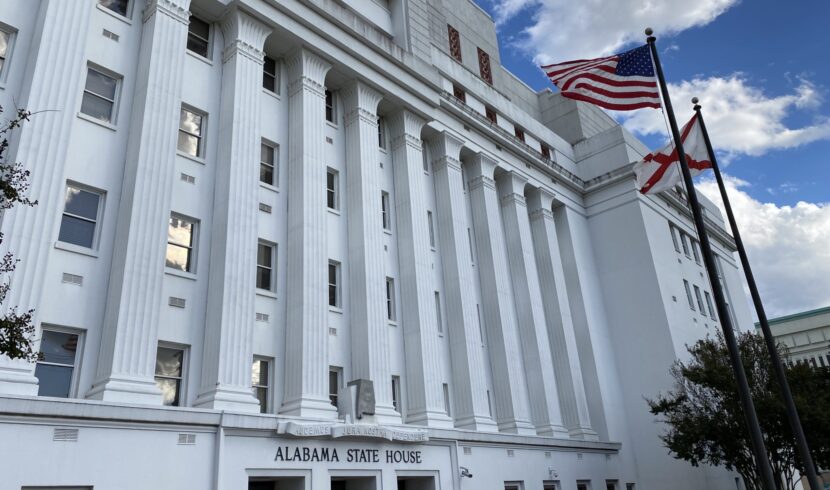Statewide Amendment 1

Proposing an amendment to the Constitution of Alabama of 2022, to amend Section 71.01 authorizing the Legislature to sign and transmit local laws or constitutional amendments before the transmission of basic appropriations.
Proposed by Act 2023-562 (Senate Bill 3, 2023 Second Special Session)
Bill Sponsor: Senator Chambliss
When voters go to the polls on Tuesday, March 5, they won’t just be voting in the Democratic or Republican primaries; they’ll also vote on an amendment to the Alabama Constitution of 2022.
Amendment 1 proposes simplifying the process of moving resolutions and local legislation through the Legislature before the state budgets are passed.
If the amendment passes, a 3/5 vote of the Legislature would no longer be required before considering the passage of a resolution, local legislation, or a local constitutional amendment.
Proposed Amendment 1 is actually a tweak of the amendment championed by Gov. Fob James, which was ratified back in 1984. The amendment was aimed at focusing the Legislature on its most important job: passing the education and general fund budgets. It was designed to make it hard to bring up other legislation before the budgets passed.
Currently, until the budgets pass, every piece of Legislation requires two votes: one for what’s called a Budget Isolation Resolution, which requires three-fifths support to allow consideration, and a second vote on the piece of legislation itself.
While Amendment 1 will ease the process for resolutions and local legislation, the higher vote threshold (required prior to the passage of the budgets) remains in place for general laws, laws that apply statewide. Local constitutional amendments will still require a three-fifths vote to pass. They just won’t require two votes, one for a BIR and a second vote on the measure.
The original purpose of the 1984 amendment was to avoid last-minute scrambles to pass budgets. That didn’t happen. Budgets still tend to be worked on until the waning days of the session. Budgets are complicated and involve a lot of give and take. They are the culmination of a process, but they also are not all-consuming. Legislative action on other matters doesn’t necessarily get in the way of making progress on the budget.
In some circumstances, the BIR procedure does provide a mechanism for blocking or delaying consideration of controversial legislation. If more than one-third of members of either the House or Senate oppose a bill, they can band together and prevent consideration.
That blocking mechanism was more in play when the Legislature was more evenly divided along party or interest group lines. It is less relevant now that the Republicans hold a super-majority in both houses. The BIR can still come into play on bills that cut across party lines, but, for the most part, nowadays, it is simply an extra step in the legislative process.
The proposed amendment’s focus on local legislation stems, in part, from a series of lawsuits that questioned the validity of some local laws based on BIR-related votes. The Constitution requires “three-fifths of a quorum present” to vote on the BIRs. But Alabama House of Representatives rules and practice allowed BIRs to pass if three-fifths of those voting voted yes. Even though the legislative and constitutional fixes have reaffirmed previously passed legislation, proponents want to avoid future challenges by exempting local legislation.
The amendment doesn’t address the more fundamental issue of whether the state Legislature should be voting on local legislation at all. In other states, local governments have more power to conduct their own affairs. In those state the Legislature focuses on statewide policy. In Alabama, in 2023, 30% of the bills passed by the State Legislature applied to a specific county or locality, according to a PARCA analysis of legislative records. Further, the bulk of the Alabama Constitution is made up of amendments that apply to specific counties and localities. That inclusion of local matters in the state constitution helps make Alabama’s Constitution by far the longest state constitution in the U.S.
Another state constitutional amendment is on the ballot March 5, but only in Dale County. Voters there will decide whether mayors in the county are allowed to participate in the state’s retirement system.
